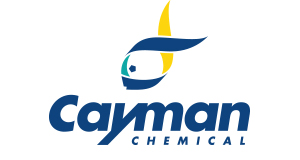PINK1 Polyclonal Antibody
PINK1 Polyclonal Antibody
Artikelnummer
CAY10006283-500
Verpackungseinheit
1 ea (500 µl)
Hersteller
Cayman Chemical
Verfügbarkeit:
wird geladen...
Preis wird geladen...
Formulation: 500 μl of peptide affinity-purified polyclonal antibody
Immunogen: Synthetic peptide from the C-terminal region of human PINK1
Shelf life (days): 1095
Notes: PTEN-induced putative kinase 1 (PINK1) is a serine/threonine protein kinase that has a role in mitochondrial function.{54198,54199} It is comprised of an N-terminal mitochondrial targeting sequence, a transmembrane domain, a serine/threonine kinase domain, and a C-terminal region.{54199} PINK1 is ubiquitously expressed primarily in the brain, skeletal muscle, and heart.{54200} It localizes to the mitochondria where it is either rapidly degraded or, under conditions of low mitochondrial membrane potential, accumulates on the outer mitochondrial membrane, where it recruits and activates the cytosolic E3 ubiquitin ligase Parkin, which targets the mitochondria for mitophagy.{54200,54198} Pink1 knockout in rats leads to an age-dependent loss of dopaminergic neurons in the substantia nigra, as well as deficits in motor function and mitochondrial respiration.{54201} In mice, Pink1 knockout does not induce a loss of dopaminergic neurons without concomitant overexpression of α-synuclein in the substantia nigra.{54202} Loss-of-function mutations in PINK1 are causally associated with autosomal recessive early-onset Parkinson’s disease.{54200,12321} Cayman’s PINK1 Polyclonal Antibody can be used for immunohistochemistry (IHC) and Western blot (WB) applications. The antibody primarily recognizes full-length PINK1 at approximately 66 kDa from human, mouse, and rat samples but also detects a truncated form of the protein at approximately 33 kDa.
Immunogen: Synthetic peptide from the C-terminal region of human PINK1
Shelf life (days): 1095
Notes: PTEN-induced putative kinase 1 (PINK1) is a serine/threonine protein kinase that has a role in mitochondrial function.{54198,54199} It is comprised of an N-terminal mitochondrial targeting sequence, a transmembrane domain, a serine/threonine kinase domain, and a C-terminal region.{54199} PINK1 is ubiquitously expressed primarily in the brain, skeletal muscle, and heart.{54200} It localizes to the mitochondria where it is either rapidly degraded or, under conditions of low mitochondrial membrane potential, accumulates on the outer mitochondrial membrane, where it recruits and activates the cytosolic E3 ubiquitin ligase Parkin, which targets the mitochondria for mitophagy.{54200,54198} Pink1 knockout in rats leads to an age-dependent loss of dopaminergic neurons in the substantia nigra, as well as deficits in motor function and mitochondrial respiration.{54201} In mice, Pink1 knockout does not induce a loss of dopaminergic neurons without concomitant overexpression of α-synuclein in the substantia nigra.{54202} Loss-of-function mutations in PINK1 are causally associated with autosomal recessive early-onset Parkinson’s disease.{54200,12321} Cayman’s PINK1 Polyclonal Antibody can be used for immunohistochemistry (IHC) and Western blot (WB) applications. The antibody primarily recognizes full-length PINK1 at approximately 66 kDa from human, mouse, and rat samples but also detects a truncated form of the protein at approximately 33 kDa.
| Artikelnummer | CAY10006283-500 |
|---|---|
| Hersteller | Cayman Chemical |
| Hersteller Artikelnummer | 10006283-500 |
| Green Labware | Nein |
| Verpackungseinheit | 1 ea (500 µl) |
| Mengeneinheit | STK |
| Reaktivität | Human |
| Klonalität | Polyclonal |
| Methode | Western Blotting, Immunohistochemistry |
| Wirt | Rabbit |
| Produktinformation (PDF) | Download |
| MSDS (PDF) | Download |

 English
English







